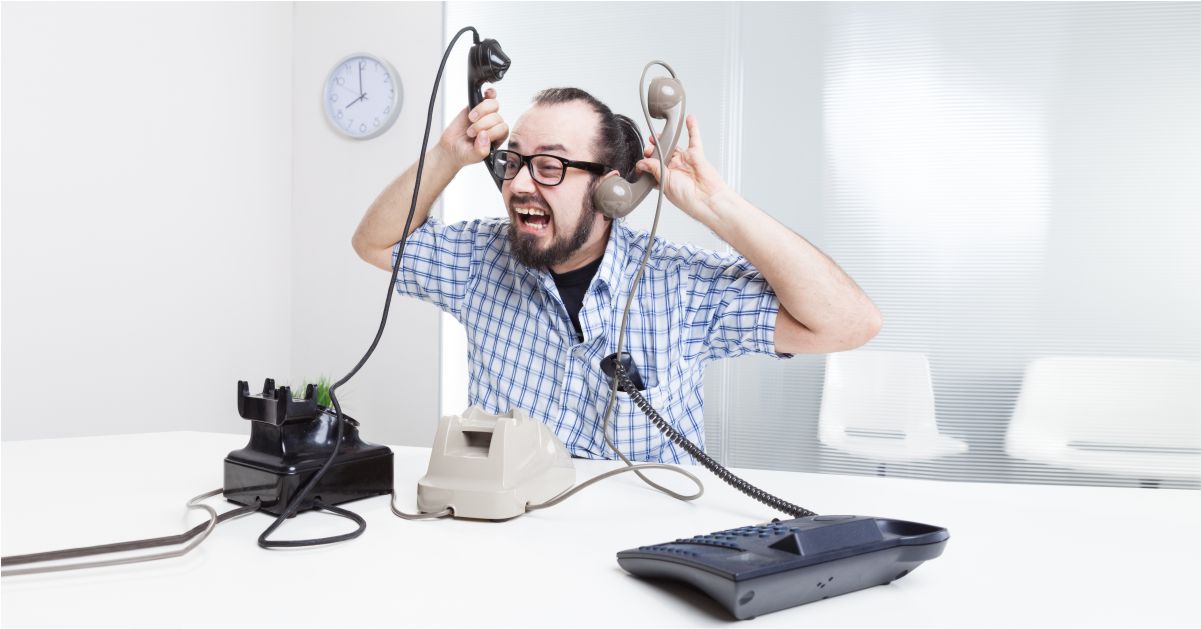All Categories
Featured
Table of Contents
- – What Is The Best Spring What Is A Telephone Ans...
- – Whats The Best Answering Service Operator: Wha...
- – What Is The Best How Answering Services Work B...
- – What Is The Best Phone Answering Services For...
- – When Best Time To Buy Answering Service Faqs ...
- – What Is The Best Phone Answering Service - I...
What Is The Best Spring What Is A Telephone Answering Service And What Are The ...
This gadget and its successors were designed by Sava Jacobson, an electrical engineer with a private consulting service. While early voice mail utilized magnetic tape technology, a lot of contemporary devices utilizes solid state memory storage; some devices utilize a mix of both, with a solid-state circuit for the outgoing message and a cassette for the incoming messages.
"toll saving" below) (phone answering). This is useful if the owner is screening calls and does not want to talk with all callers. In any case after going, the calling celebration must be informed about the call having actually been answered (in many cases this begins the charging), either by some remark of the operator, or by some welcoming message of the TAD, or resolved to non-human callers (e.
This holds particularly for the Little bits with digitally kept welcoming messages or for earlier devices (prior to the rise of microcassettes) with a special limitless loop tape, separate from a second cassette, dedicated to recording. There have actually been answer-only devices with no recording capabilities, where the greeting message needed to inform callers of a state of existing unattainability, or e (virtual telephone answering).
Whats The Best Answering Service Operator: What Is It? And How To ...

about schedule hours. In taping Littles the greeting generally includes an invitation to leave a message "after the beep". An answering machine that uses a microcassette to tape messages On a dual-cassette answerphone, there is an outbound cassette, which after the defined variety of rings plays a pre-recorded message to the caller.

Single-cassette voice mail contain the outgoing message at the start of the tape and incoming messages on the remaining area. They first play the announcement, then fast-forward to the next offered space for recording, then record the caller's message. If there are many previous messages, fast-forwarding through them can cause a significant hold-up.
This beep is often described in the welcoming message, asking for that the caller leave a message "after the beep". TADs with digital storage for the recorded messages do not show this hold-up, obviously. A little bit might use a remote control facility, whereby the answerphone owner can ring the home number and, by going into a code on the remote telephone's keypad, can listen to taped messages, or delete them, even when far from home.
What Is The Best How Answering Services Work Brand

Thereby the maker increases the number of rings after which it answers the call (typically by 2, leading to four rings), if no unread messages are presently kept, but responses after the set variety of rings (generally 2) if there are unread messages. This permits the owner to learn whether there are messages waiting; if there are none, the owner can hang up the phone on the, e.
Some devices likewise allow themselves to be remotely triggered, if they have actually been changed off, by calling and letting the phone ring a particular large number of times (typically 10-15). Some provider desert calls already after a smaller sized number of rings, making remote activation impossible. In the early days of Littles an unique transmitter for DTMF tones (dual-tone multi-frequency signalling) was regionally needed for remote control, considering that the formerly utilized pulse dialling is not apt to communicate proper signalling along an active connection, and the dual-tone multi-frequency signalling was implemented step-by-step.
Any inbound call is not identifiable with respect to these homes in advance of going "off hook" by the terminal equipment. So after going off hook the calls must be switched to appropriate devices and only the voice-type is instantly accessible to a human, however possibly, however must be routed to a LITTLE (e.
What Is The Best Phone Answering Services For The Money
What if I informed you that you do not need to really choose up your gadget when answering a customer call? Another person will. So practical, best? Answering phone calls does not require somebody to be on the other end of the line. Efficient automated phone systems can do the trick simply as effectively as a live agent and sometimes even much better.
An automated answering service or interactive voice action system is a phone system that interacts with callers without a live individual on the line - call answering services. When business use this innovation, clients can get the response to a question about your organization just by utilizing interactions established on a pre-programmed call flow.
Although live operators update the client service experience, numerous calls do not need human interaction. An easy documented message or guidelines on how a consumer can retrieve a piece of info typically resolves a caller's immediate need - virtual call answering service. Automated answering services are a basic and efficient method to direct incoming calls to the right individual.
When Best Time To Buy Answering Service Faqs - Questions & Answers
Notice that when you call a company, either for support or item questions, the very first thing you will hear is a pre-recorded voice welcoming and a series of alternatives like press 1 for customer support, press 2 for inquiries, and so on. The pre-recorded options branch off to other options depending upon the consumer's choice.
The phone tree system assists direct callers to the ideal individual or department utilizing the keypad on a mobile phone. In some circumstances, callers can utilize their voices. It deserves noting that auto-attendant choices aren't restricted to the 10 numbers on a phone's keypad. As soon as the caller has chosen their very first option, you can create a multi-level auto-attendant that uses sub-menus to direct the caller to the ideal type of support.
The caller does not need to communicate with a person if the auto-attendant phone system can handle their concern. The automated service can route callers to an employee if they reach a "dead end" and require help from a live representative. It is costly to employ an operator or executive assistant.
What Is The Best Phone Answering Service - Intelligent Office
Automated answering services, on the other hand, are considerably less expensive and offer significant expense savings at approximately $200-$420/month. Even if you don't have committed staff to manage call routing and management, an automatic answering service enhances performance by allowing your group to focus on their strengths so they can more effectively spend their time on the phone.
A sales lead routed to customer support is a lost shot. If a client who has item concerns reaches the wrong department or gets incomplete responses from well-meaning workers who are less trained to manage a specific type of concern, it can be a reason for aggravation and discontentment. An automated answering system can reduce the variety of misrouted calls, thereby assisting your employees make better use of their phone time while releasing up time in their calendar for other tasks.
With Automated Answering Systems, you can produce a tailored experience for both your staff and your callers. Make a recording of your primary welcoming, and just upgrade it regularly to reflect what is going on in your company. You can produce as many departments or menu options as you desire.
Table of Contents
- – What Is The Best Spring What Is A Telephone Ans...
- – Whats The Best Answering Service Operator: Wha...
- – What Is The Best How Answering Services Work B...
- – What Is The Best Phone Answering Services For...
- – When Best Time To Buy Answering Service Faqs ...
- – What Is The Best Phone Answering Service - I...
Latest Posts
Budget-Friendly Virtual Phone Answering
Proven Small Business Answering Service ( Australia 3008)
Value Custom Phone Answering
More
Latest Posts
Budget-Friendly Virtual Phone Answering
Proven Small Business Answering Service ( Australia 3008)
Value Custom Phone Answering